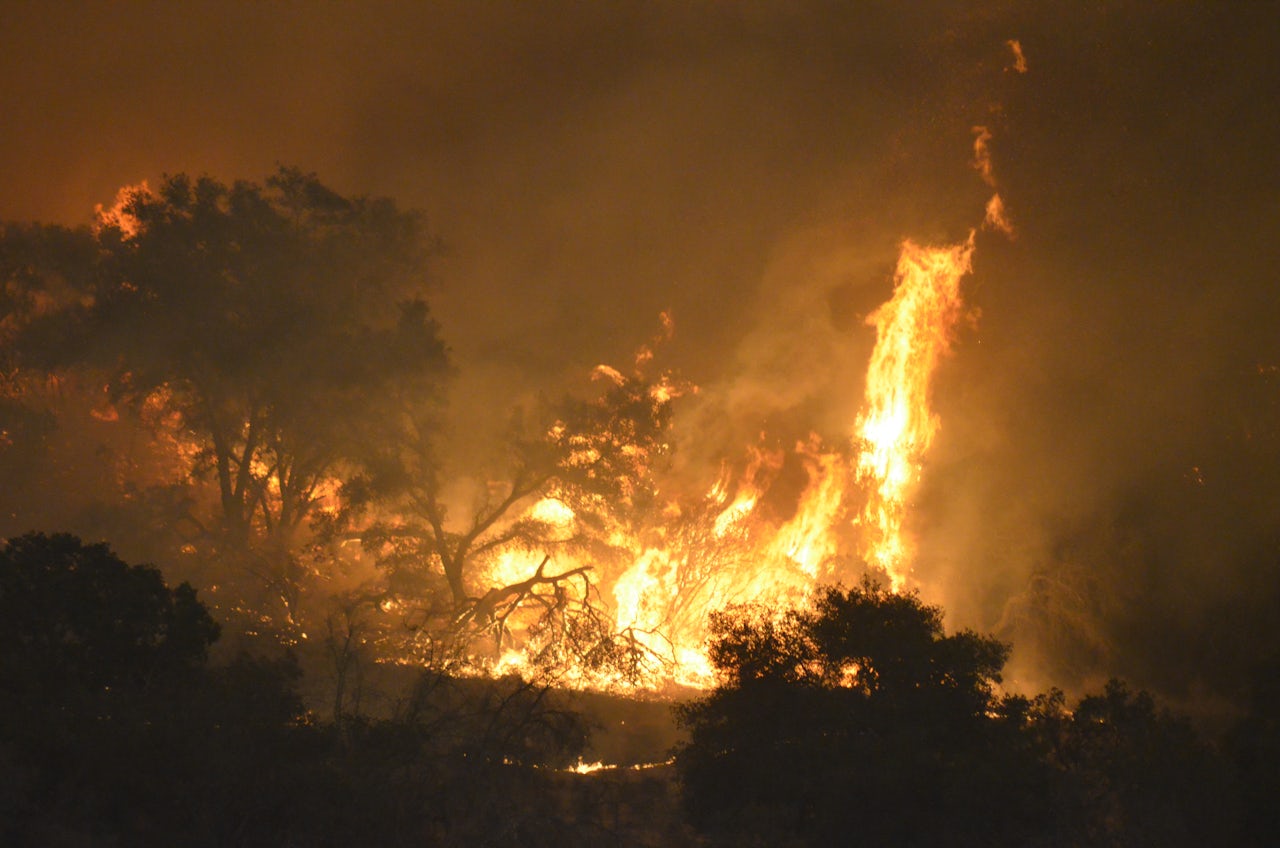On November 8, 2018, two major fires started in California and as of today, continue to rage on. The Camp Fire in Butte County in northern California has become by far the deadliest and most destructive fire in California history. The Camp Fire has hit middle-class neighborhoods, while the Woolsey Fire has impacted numerous celebrities and wealthy residents in Ventura County and wealthy suburbs in Los Angeles County. The Woolsey Fire has caused three reported deaths in the impacted parts of Los Angeles County such as Malibu, where the average household yearly income is $128,712, and in Ventura County, where the average household income is $100,000. In contrast to these wealthy areas where celebrities have reportedly been hiring private militia for their insured mansions, the death total has risen to 63 with over 600 missing in Butte County and surrounding areas, where the average household yearly income is $43,000, well below the national average of $53,482. In addition, in Butte County 200 incarcerated people are being forced to fight the fires for $1/hour. Unsurprisingly, while the rich are taking advantage of privatized systems and protecting their multi-million dollar mansions, the poor are dying.
As the disparate impact of these fires demonstrates, although white class-privileged people are culpable for climate change and the environmental disasters it results in, they are able to use their wealth to avoid the devastating consequences while poor people, who tend to be largely people of color, bear the brunt of the harm. In fact, media coverage of these fires has been dominated by the stories of impacted celebrities.
To protect their mansion worth $60 million, Kim Kardashian and Kanye West hired private firefighters, which are often used by the ultra-wealthy and insurance companies. Kardashian and her sisters have posted an endless stream of social media posts and gave a speech regarding the fires, which have garnered them significant public sympathy. Coincidentally, in none of these public statements has Kardashian mentioned her use of private firefighters.
On Wednesday, the singer Pink’s husband, former professional freestyle motorcross racer Carey Hart, made headlines for posting an Instagram photo of him and a large group of white men wearing bandanas and masks, carrying guns and a sign, "LOOTERS WILL BE SHOT ON SITE! P.D.C. POSSE." His caption was hashtagged #DefendYourLand and #2ndamendment. Actress Shannen Doherty has apologized for reportedly posting a similar image of a gun and threatening harm to looters.
The model Bella Hadid, actor-turned-controversial-Twitter user James Woods, and actress and activist Alyssa Milano have garnered public sympathy for using their wealth to protect the horses they and their friends own, a problem clearly only the wealthy have. Similarly, Ireland Baldwin has received support after tweeting that she was offended by police officers who supposedly failed to show her "compassion" by asking for her ID as she removed items from her home.
To protect these wealthy residents’ property, the Los Angeles County Sheriff's Department and Ventura County Sheriff's Department both announced that they have dispatched at least 200 officers to further militarize the area and arrest looters. Insurance companies have also deployed teams of private firefighters, comprised of “specialists and former firefighters,” to protect the most expensive properties they insure. In addition, homeowners have hired private bodyguards to risk their lives to protect property from looters. Rather than understanding that looting is a symptom of extreme class inequality in our society, these rich residents have condemned the looting as proof of lack of morality amongst the poor.
The stark contrast in the fires’ impact demonstrates greater environmental racism and class inequality. Being from southern California, I know from experience that one's ability to minimize and/or recover from fire damage falls strictly along class and race lines. The only people who can afford or even know about fire home insurance, afford days off work to evacuate, find difficult to access information on evacuations, find temporary housing, and navigate insurance claims systems—are white, educated, class-privileged people.
Multiple reports have confirmed that the world’s richest 10 percent are causing climate change and that just 100 companies are responsible for 71 percent of global emissions, and several major climate assessments have confirmed that climate change is causing the increase in wildfires and environmental disasters. As The Atlantic’s “Environmental Racism is the New Jim Crow” video puts it, “Pollution and the risk of disaster are assigned to black and brown communities through generations of discrimination and political neglect.”
We are entering a dystopian future in which class-privileged white people are using privatized systems and their obscene wealth to avoid the catastrophic environmental effects of the racist capitalist system that they forced upon the world. While they are funding these privatized resource systems with the wealth they built off of marginalized peoples, wealthy white people are simultaneously supporting Trump in droves, who blamed forest management for these current fires and derided a United Nations report released last month finding that the world has 12 years to avert global environmental catastrophe. These fires and their disparate impact demonstrate a necessity for structural action on climate change and support for those who will be most harmed—poor people and people of color.
